What are the Pros and Cons of raising backyard chickens?
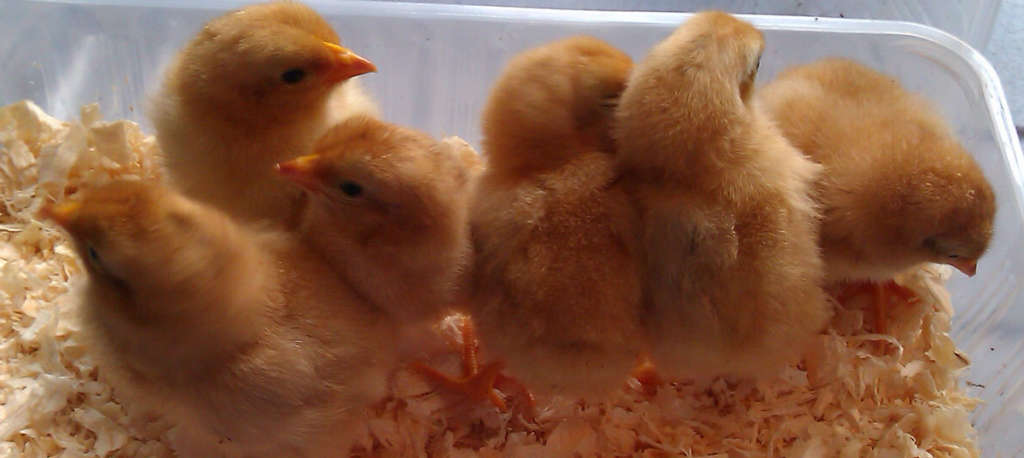
Backyard or urban chickens may be a fast growing movement across the USA and indeed many other countries as well, but people have been keeping and raising chickens in their backyards for hundreds of years despite there being some downsides or cons to keeping chickens.
Below: Keeping chickens is so often messy and yet people keep doing it, are the cons really that bad?
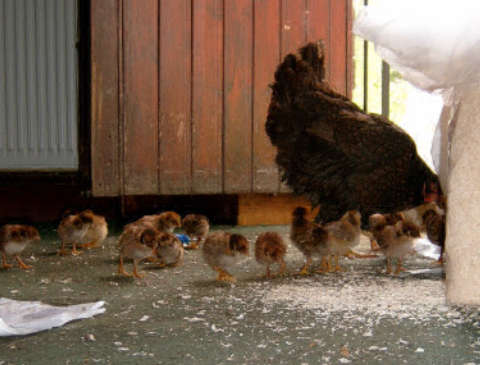
Are backyard chickens worth it?
Backyard chickens can be made to turn a profit but they do require time and space. Whether for meat or for eggs, backyard chickens can provide food, entertainment, or a convenient and very effective form of pest control (free range chickens eat bugs). However, as with all things, there can be a downside to raising backyard chickens.
There are plenty who are happy to evangelise about the upsides or pro's of chicken keeping but not the downsides.
If you are unsure try making a list to see how they would impact you and organise to look after someone else for a week or two to see how you get on with them.
For me there are plenty of reason to keep chickens but lets look at the reasons not to first.
THE CONS OF CHICKENS:
This is the list of problems that need solving and the downsides of keeping chickens.
1. Space - First, you will need to have enough space to raise your chickens. While chickens are not large animals, they are extremely social; therefore you will need more than one to make sure your chickens are happy.
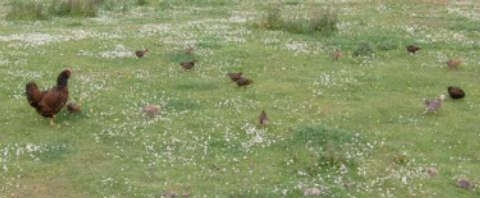
Each chicken requires a certain amount of space to forage, lay eggs, and roost. If you live in an urban area with limited outdoor space, this may take up more of backyard than you bargained for.
It’s also important to remember that many cities have by-laws in place that dictate how large your coop should be and what space your chickens should have available to them. If your chickens feel cramped, they may become stressed, which will lead to illness.
2. Protection - Another downside to owning backyard chickens is their protection. Hens are ineffectual at protecting themselves and are tasty morsels for urban predators, such as cats, dogs, raccoon, foxes, and even snakes and rats (especially for chicks).
To protect your little flock, you’ll need to invest time and money. If your chickens are free range, you will need a high, sturdy fence of chicken wire that goes at least a foot in the ground (to prevent predators from burrowing under it).
Below: Foxes are just one of the predators that find chickens tasty.

You will also need a locking coop that lets the chickens seek shelter at night where they can get a restful sleep. If your chickens are not free range, they will still require a fully fenced and covered run and a large coop to protect them.
A fence and a coop can easily run into the thousands of dollars to construct (depending on your location and needs), so it’s an important component to keep in mind.
3. Smelly Droppings - Your chickens will unfortunately produce a lot of leavings that you will also have to deal with. Chicken faeces are high in ammonia and can have a very potent smell.
This can cause tensions with your neighbours if left untreated, will make your backyard an unpleasant spot to spend any time in, and is also quite unhealthy for your hens.
To deal with this, you’ll want to put down a thick layer of “litter” in the coop and the run to cover the floor and absorb the waste. Pine needles, sawdust or straw work well and should be regularly layered.
In winter, these layers of litter can be kept down as a form of insulation, with regular additions of fresh litter. In the spring, this litter can be hauled out and added to your compost pile, to your garden, or offered to someone to haul away. If you don’t keep a garden, consider adding one to make use of this great fertiliser (though it will be more work for you to consider).
4. Cost - Chicken feed is relatively inexpensive, but it’s a cost you have to keep in mind when growing your flock. You can supplement their food with kitchen scraps, but it can be hard to maintain a balanced diet this way, especially if you don’t produce enough food scraps to evenly feed the entire flock.
Below: what used to be strawberry plants before the chickens got to them.

Your backyard chickens will also require attention. While not as intense as say, taking on dairy cattle, chickens still require fresh water, shelter, food, and care. That means that if you go on vacation, you will need someone to care for your chickens the same as you would need someone to care for you cat or dog.
5. The capital outlay - When you first buy a coop and equipment is likely to be substantial.
6. The mess - Many people fail to realise that keeping chickens and having a pristine lawn simply do not go together. Chickens forage by pecking and scratching at the earth—overturning debris and grasses as they go—and not caring one bit about the state of your lawn.
7. Garden damage - To your chickens, your grass is just something that’s in the way of getting to a potentially tasty snack. Chickens are also crafty when it comes to seeking out grubs of any kind, especially those that live around the roots of plants.
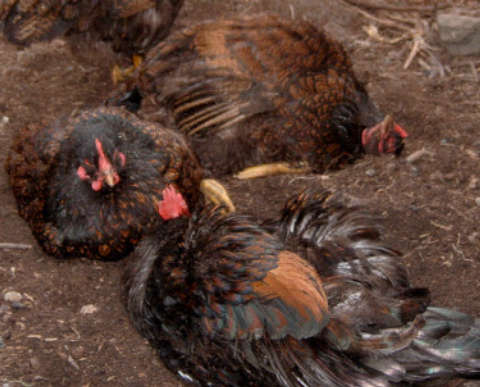
Chickens will find the best place for a dust bath. If that happens to be a flower bed then so be it!
This, unfortunately, will also apply to your vegetable garden or flowerbed. So if you want those to survive your flock, you’ll want to fence them off as well.
8. The male of the species - If you are considering having a rooster, you’ll want to check your by-laws before investing. Many urban zones do not permit roosters because of the noise. Unfortunately, roosters do not just crow with the rising sun. Instead, they crow all day, every day (some with much more gusto).
This can be quite frustrating for your neighbours—and for you. If you do have a rooster who is fertiliser your eggs, you’ll also have to consider what you will do with the hatched chicks. Unless you want your flock to grow quite rapidly (which is not permitted in most urban areas), you will have to consider dispatching the chicks. Which leads us to our next downside…
9. The noise - Roosters are guilty of this, crowing from the first splash of light in the morning and waking people up. Hens can be a bit noisy as well and some overdo it with an egg song that never seems to stop.
10. Ailing or sick birds - Chickens also require the same care and medical attention as any animal you might keep. Though chickens are hardy farm animals, they are not invincible.
Eventually, one of your chickens will get sick or be injured. You will need to have the finances to bring the chicken to a vet or have a farm vet come out to you. You will need the time and patience to help your chicken heal, or you will have to make the decision to end your chicken’s suffering.
This is something that many people are uncomfortable with and do not fully consider when investing in backyard chickens.
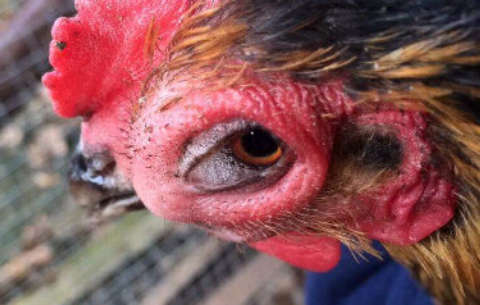
Sick old and dying birds need dealing with and it's not always easy.
11. Old hens, culling and dying - This is probably the biggest downside to raising chickens. Death is a very real component when it comes to raising chickens, even when it’s just your little backyard flock. When you are raising chickens, you have to remember that birds die. This is simply an unfortunate reality of owning chickens.
Whether you lose them to predators or to illness, or they need to be dispatched by yours truly, death is something you have to be prepared for when owning backyard chickens.
Your hens will also reach an age when their egg production will start to drop off, however, they will still live for years after that.
You will need to consider what you will do when you have an older hen that is not producing as many eggs but is still taking up room in your coop. Many people enjoy having backyard chickens as a way to teach their children to better understand where their food comes from.
This means that your children may also have to face the fact that animals die to get their food—something that they may have to witness when something happens to one of your hens.
12. Vermin - Chicken feed brings rats. They can enjoy shelter, water and food all at your expense and they take some getting rid of.
13. Holidays and vacations - You will need to get someone to look after them if you go away. chickens need daily care.
14. The law - You are liable for any damage they do to anyone else property as you have a responsibility to keep them secure. There are also a great many local laws regarding the keeping of livestock.
15. Maintenance - Everything needs looking after, treating and renewing occasionally.
16. Passing disease to humans - Chickens can carry Ecoli and other diseases and parasites that can infect their keepers. It is rare but it does happen.
17. It is hard work - that takes up your time.
While this may seem like a lot of downsides, it’s important to remember that owning chickens isn’t something you should take lightly. They are not toys and will require care. However, they are a true joy to have around as well and, in fact, most of the downsides should fall well within the scope of owning any animal.
Rewarding it is but also frustrating when they find your young parsley seedlings so tasty.
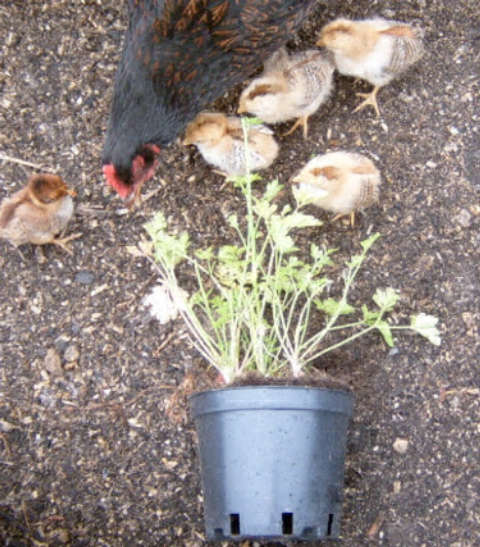
Listing the downsides of owning chickens isn’t to deter you, but instead to make sure you are better equipped to the ups and down of urban farming. With knowledge, there is power, so understanding the negatives before investing in your flock will leave you better prepared to care for your flock and not be put off when things go awry or you lose a few chickens (or your entire yard).
Most anyone you will talk to who owns chickens will happily give you these downsides, but will always finish with the joy that their chickens bring them.
I adore my chickens for all their faults and would never be without them.
Chickens provide ample entertainment, have great personalities, and are a true joy to watch. A healthy flock will reward your attentions with lovely eggs and joyous clucking at the sight of you.
Your children will have the opportunity to learn about the sources of meat and the importance of respecting the lives of the animals that give you that meat. You will also have access to the freshest, richest, brightest eggs you’ve ever tasted!
THE UPSIDES OF BACKYARD POULTRY ARE:
1. The amazing eggs:
Fresh free range eggs from your own birds is a real treat and you won't be able to go back to shop bought eggs after.
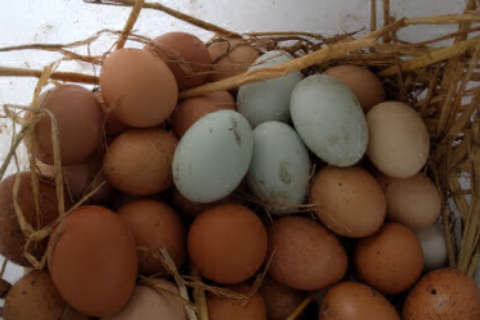
This is what it's all about - -fresh eggs daily.
2. Animal welfare:
Its better for the chickens not to be kept in cramped cages where they are routinely fed antibiotics and the cheapest food money can buy. whereas if you do it you can feed them properly.
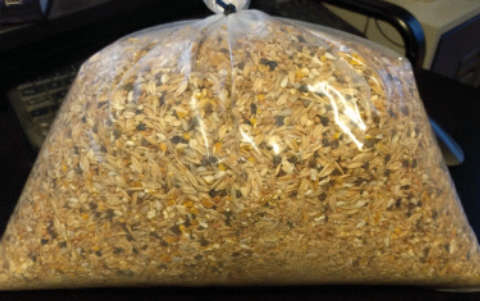
Reduced food miles: Shop bought eggs may have travelled hundreds if not thousands of miles so it is better for the environment to keep a few hens in your garden.
3. Entertainment:
I find my hens fascinating to watch. They are endlessly entertaining and all have distinct characters.
4. Education:
Learning where your food comes from and animal husbandry are essential life skills.
I have seen it said that there is a reduced risk of salmonella and ecoli infections from keeping your own backyard chickens - this is actually not the case, you are 33% more likely to become infected from your own chickens over buying eggs.
The reality of this is that the risk is so small either way especially if you are in good health and not in a risk group that it makes little difference.
I have never been ill from my hens in 30 years and neither has anyone else I know who keeps chickens.
Below: I have loads of chickens and I would never be without them.
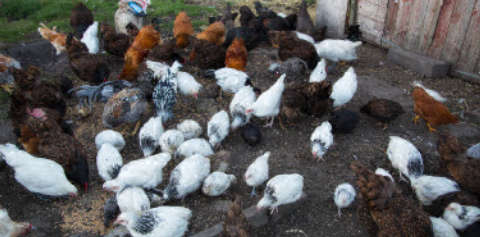
To that end, I truly believe that the joy you will receive from watching and caring for your backyard chickens often outweighs the downsides. Once you get set up and have the structures in place that you need, you will probably find that caring for chickens is quite easy.
Many people find it calming as well—not only to care for, but also to watch their chickens. Many people with backyard chickens will volunteer that the first year can be a steep learning curve as you figure out what your flock needs, maybe face your first sick or dying chicken, and get a better handle on things such as food placement, waste disposal, and protection of your flock.
From there, you will find that things will become status quo and your flock will become a stable addition to your household.
